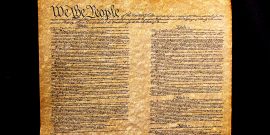NPR: Losing Reason, Abandoning Journalism
National Public Radio is being justifiably lampooned for changing its ethical guidelines to allow its journalists to become activists. NPR’s guidelines on impartiality now allow reporters to express themselves on such issues as “the freedom and dignity of human beings.” Critics complain, justifiably, that those terms are inkblot tests onto which any political position can be projected and from which any objectionable view can be excluded.
But the deeper problem for NPR is not that these terms cannot be defined. It is that they can be. And the definitions provided by centuries upon centuries of natural law tradition are not, one suspects, what NPR means.
According to the new guidelines:
NPR editorial staff may express support for democratic, civic values that are core to NPR’s work, such as, but not limited to: the freedom and dignity of human beings, the rights of a free and independent press, the right to thrive in society without facing discrimination on the basis of race, ethnicity, gender, sexual identity, disability, or religion.
NPR’s public editor, Kelly McBride, explains that the guidelines allow journalists to participate in such causes as Black Lives Matter demonstrations or Pride parades, though they have to discuss specifics with their supervisors. Events to support a candidate or a specific piece of legislation are off limits. That seems clear enough—and certainly Fox News hosts like Sean Hannity have participated in explicitly political activities—except that McBride says it isn’t clear after all. The new guidelines, she writes,
don’t answer some of the thorniest questions, like what if a journalist wants to picket an abortion clinic or demonstrate in support of women’s autonomy over their bodies? What about a journalist who wants to express her general support of the Second Amendment? Or a parent who wants to march in solidarity with families and victims of a mass shooting?
And here we begin to get to the heart of the matter. Clarity would require a consistent and meaningful understanding of what “dignity” and “freedom” mean. The problem is that, according to the natural law tradition, the integrity of the former depends on limits on the latter.
According to that tradition, the defining human trait is our rational nature. Logos—the ability to reason and communicate about the good—is the genuine human difference, the sense in which we are distinguishable from other creatures. That insight dates at least to Aristotle’s observation that man is a political animal. Augustine and Aquinas developed it theologically. In the Christian understanding, human beings are defined by relationships—whether relationships to the Divine or obligations to other people. Jewish theologians, too, like Abraham Joshua Heschel, have understood human dignity to be inseparable from human relationships. Alan Mittleman explains Heschel’s emphasis on the relational person: “On his account, we gain our personhood, ultimately, through our relationship with God. ‘I am commanded, therefore I am.’”
A neutral press that seeks to use language carefully would be a genuine service to a democratic people.
Someone concerned solely with his or her personal freedom, especially to the extent the objects of freedom are dictated by passions rather than reason, lacks, or fails to act on, the essential dignity of the human person. He or she surrenders the dignity of honoring obligations and living according to his or her rational nature. Pope Benedict XVI explained in a 2006 homily:
In contemporary culture, we often see an excessive exaltation of the freedom of the individual as an autonomous subject, as if we were self-created and self-sufficient, apart from our relationship with others and our responsibilities in their regard. Attempts are being made to organize the life of society on the basis of subjective and ephemeral desires alone, with no reference to objective, prior truths such as the dignity of each human being and his inalienable rights and duties, which every social group is called to serve.
There is, of course, room for conversation on which rights are truly inalienable. But two points are salient. One is that rights do not exist in isolation. They conflict with each other. One might be able to sustain the position that the more important a right is, the likelier it generally is to bump into other rights. McBride recognizes as much in counterposing the Second Amendment to public safety. Those disputes cannot be settled by an appeal to abstract “freedom.”
The second point is Benedict’s observation that obligations, too, are inalienable. In our daily lives, as in colloquial conversation, we understand this. Someone who lives up to obligations to others, for whom the common good supersedes personal desires, is dignified. This person recognizes his or her indebtedness to other individuals and to the community and tradition in which he or she lives. By contrast, even fanatical advocates of individual autonomy can recognize, and instinctively condemn, a lout who repudiates his or her personal responsibilities.
This obligation is not merely chosen: One does not have the “freedom” to reject the fact of indebtedness. It is a fundamental condition of humanity. Yet in a decisive sense, the limits obligation imposes are liberating rather than enslaving. This is the liberty of which John Winthrop spoke in 1645. Winthrop dismissed “natural liberty”—the liberty to do whatever one wants—as indistinguishable from the freedom of other creatures. By contrast:
The other kind of liberty I call civil or federal; it may also be termed moral, in reference to the covenant between God and man, in the moral law, and the politic covenants and constitutions, amongst men themselves. This liberty is the proper end and object of authority, and cannot subsist without it; and it is a liberty to that only which is good, just, and honest. This liberty you are to stand for, with the hazard (not only of your goods, but) of your lives, if need be. Whatsoever crosses this is not authority, but a distemper thereof.
This idea of human dignity requires that the person understand himself or herself as, and act like, a particular individual relating to other beings rather than being subsumed into a collective. The Greek etymology of “person” is derived from the anonymous masks of the ancient theater. Christianity developed the term to refer to the particular and relational individual, especially the persons of the Trinity. On that understanding, essentialist theories of human beings that reduce them to characteristics like race are incompatible with dignity as well.
Where does all that leave NPR? The network assumes there are some things on which everyone agrees. Keith Woods, NPR’s chief diversity officer, told McBride as much: “There are things in the world where we are not torn about where we stand. We are against bigotry, we are against discrimination and unfairness.”
It is tempting to respond that we are very much torn about what constitutes bigotry, discrimination, and unfairness. But that is to miss the larger point. The fact of disagreement does not settle the substance of an argument. Simply pointing to dispute to challenge a position would partake of the same relativism to which NPR’s new standards are prone.
Rather, we should hash these things out by reasoned argument. But there, NPR should take care. Argument presupposes our rational faculties. It also assumes that dignity consists in exercising them over our mere desires. NPR should be careful what it wishes for. Human beings do indeed possess innate dignity. The application of our rationality to what dignity means—which would be a service on the part of a neutral press, something NPR is declining to be—might lead to limits on human freedom, not the unleashing of it. A neutral press that seeks to use language carefully would be a genuine service to a democratic people. Activists posing as journalists, the use of sloppy language, or both make reasoned argument and therefore human dignity harder.
Substitute “liberty” for “freedom” and “persons” for “human beings,” and the new guidelines nicely encapsulate centuries of natural law tradition from which NPR’s ethical guidelines could benefit. We might know NPR means what it says when it permits journalists to advocate for limits on unbounded freedom in the name of human dignity.


